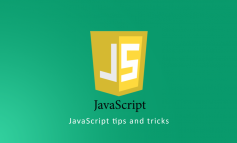Differences Between JavaScript var vs Let
JavaScript is a scripting language that declares variables of various kinds using keywords like let, const, or Var. Let and const share similar characteristics in terms of the lexical scope. Lexical scope refers to the accessibility of variables’ values within the enclosed or defined block, that holds valid values and is able to be accessible.
Read Also: Const vs. Let vs. Var in Javascript. Which one should you use?
JavaScript Lexical Scoring is also known as Static scoping or Closures, which is a powerful idea. In JavaScript the variable var is not part of a scope in a block; however, if it is declared in a class it’s accessible to all scopes starting from the top and ending at the bottom, however, let isn’t able to allow its variable’s value to be read outside the block it’s enclosed in. declarations that contain ‘var’ are processed at the time the execution of the function begins. It is reminiscent of a concept known as hoisting (rising from the bottom) within the functions.
The phrase “let” was added in ECMAScript standard edition 6, which is commonly referred to as ES6 or ES 2015. ECMAScript is the body responsible to maintain the global standard editions of JavaScript to ensure its ability to adapt across the web browsers and their environment, allowing all the major internet giants in sync.
In JavaScript when the variable is declared inside a conditional for() loop and then is accessible in a global manner and outside this loop. But let does not permit this and restricts the declared variable from being accessed in the for a loop. Declaring variables with let results in Syntax errors during the compilation process.
Key Differences Between JavaScript Var and Let
Let’s look at some of the key distinctions between JavaScript Var Letus:
- A variable is the data storage system for a particular value given to identify its place of storage. In JavaScript, it is possible to declare a variable can be declared with let or the var. The declaration scope of ‘var’ is global regardless of the scope it is declared or its location. The variable declared with the let statement has a block-scoped or has an enclosed scope.
- In the majority of the older versions, there was var for the vast majority of variables defined in the majority in the JavaScript code. The var statement hoists the variable’s value across the entire scope, while the let statement does not lift the value.
- The declaration ‘var’ was in use since the inception of JavaScript and the let declaration was added with the ES6 (ES 2015) version of JavaScript to ensure the block scoping functionality.
- Any declaration of “var” at any scope level is global, whereas the scope can be block-scoped, where the term “block” can be described as code that is enclosed in flower braces.
- Variables declared with ‘var’ in JavaScript start their default values that are not defined once declared within the scope, while let declared variables load the default value which is not specified.
- The variable is not lexical in scope but instead is a general scope while let is a block scope. This can be explicit or implicit based on the position of the let statement. If the let statement is within the scope of the block, it is lexical scoping.
- Within the scope within the scope of the windows objects, the variables var can be used. However, statements declared variables can’t apply in this case.
- It is not safe to use the same type of identifiers that are declared with the let statement, as will result in a case that differs for declared variables.
- When it comes to performance comparisons Var is more efficient and let is slower within the loops when it is it is running or running the code.
- Re-declaring var declared as a variable within the same function or scope can cause Syntax Error, whereas a declared variable can’t be declared again.
- The confusion and mistakes caused by value overriding within the scope are avoided using the variables that are declared and advised to use whenever feasible and not always in all cases.
- In JavaScript, a variable that uses the word var may be declared with one var; however, a variable with the let statements is declared as let A = 1. the only difference that can be noticed between let and var in JavaScript is that of the scoping block, and declaration or the re-declaration.
- The names for the variable declared have certain limitations that must be observed before declaring them. The name must begin with numerals, letters, or the _ sign. The statements let and var in Javascript should not be used as names of the identifiers used when declaring variables.
Comparison Table Between JavaScript Var and Let
The table below is a comparison table that compares JavaScript Var and Let.
| Basis Of Comparisons | JavaScript Var | Let |
| Definition | Var is an old declaration method for variable | Let’s take a look at the recently introduced form of variable declaration |
| Usage | Primarily employed to create variables for JavaScript programs. Mostly used to declare variables in JavaScript | Similar to var, but with an additional feature of enforcing access to the block scope |
| Declaration | It is possible to declare it anyplace and the variable can be carried | It is possible to declare anyplace and is limited to limit boundaries |
| Accessibility | Global access | Access to scopes blocked or lexical scopeing |
| Mode | If it is in the strictest mode, var permits variables to be declared within the same context. | Let’s not allow repetition for the exact variable |
| Browser Support | All browsers can support the var | A few browsers will not support the statement |
| Hoisting | Global variables are elevated | The block-scoped variable is not a hoisted |
| Compatibility | It is supported by all browsers and runtime environments for JS | Transpilers, such as Babel can be used to convert it into older versions that can be used to support across all browsers. |
Conclusion
The use of var within JavaScript provides a large amount of room to make mistakes when executing the code. The global scope of var results in a reduction in the use of the exact identifier throughout multiple locations within the same file or class. This limits the reuse in the program. The declaration of variables with var is similar to the declaration of let, with only one difference in the lexical scope of the code.
The declaration of variables using “let” will cause the variable to be accessible across the enclosed scope, causing the identifier to be declared and then used in the block expression scope or statement. Var isn’t able to be replaced by let since it has its own uses across various areas. Let is only used when blocks are of the utmost importance and hoisting isn’t needed in the execution context.



Leave a Reply